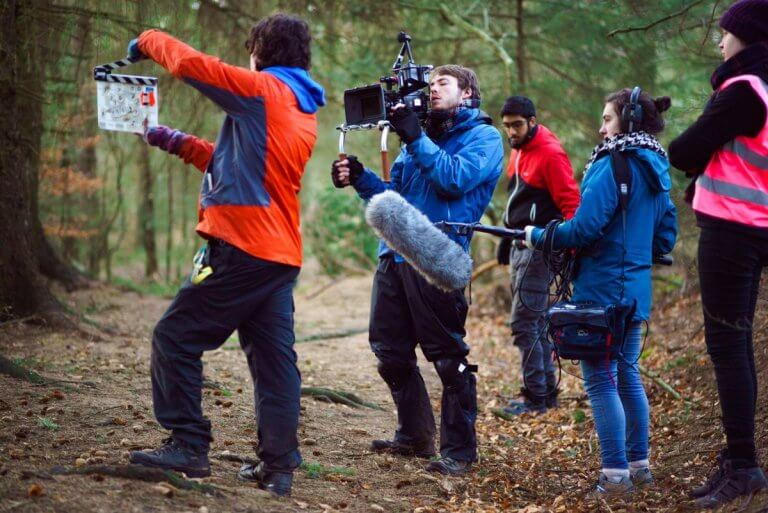
“You don’t learn to walk by following rules. You learn by doing, and by falling over.” – Richard Branson
Experiential learning has always been a hot topic within education.
Since we’ve strayed away from traditional textbooks, reverting to interactive whiteboards and technological gadgets that feed us constant flows of information, many professors and students wonder if classic classroom learning is too restricting.
Instead of confining learners to four walls and repetitive study settings, universities are transforming student lives with hands-on activities and practical seminars. By taking on this notion of ‘learning by doing’, they are more likely to understand their module content and leave with the confidence to apply these skills to the working world.
According to the Association for Talent Development (ATD), experiential learning isn’t just taking over the education sector, it’s also impacting other fields: “Experiential learning is expanding from the academic classroom to such places as the military system, state supreme court systems and service and healthcare organisations.”

Source: Shutterstock
As ATD adds, “Since David Kolb developed experiential learning nearly 50 years ago, thousands of research studies have confirmed its value, placing it among the most valued approaches to management education. It is uniquely suited to address the learning challenges of the 21st century by empowering learners to take charge of their own learning.”
Experiential education also holds a track record for triggering creative sparks among students. By encouraging learners to create and innovate new solutions and strategies, they’ll have the motivation to produce more in the future.
What’s also great about experiential learning is that mistakes are likely to be made. While some may view mistakes as negative drawbacks to the creative process, without them there would be a major lack of progress. Mistakes and mishaps shape projects into successes, giving students the chance to freely use their imagination.
With so many benefits and professors who praise this method, experiential learning is evidently a gateway to a proactive education, and one that leads graduates to industries filled with opportunity.
Here are 5 leading institutions that value the experiential education…
FACULTY OF ARTS AND HUMANITIES, UNIVERSITY OF YORK
There is a wonderful array of undergraduate and graduate programmes at the University of York, identifying and developing students’ creativity in a supportive but stretching environment.
York is an elite, internationally facing, research-intensive University and a member of the UK’s prestigious Russell Group. It prides itself on its progressive and creative ethos and on its real care for students.
York itself – declared the best place to live in the UK in The Sunday Times 2018 league table – is a famously attractive historic city in a beautiful part of the country. Teaching at York has been ranked Gold (the highest TEF award) in the national assessment of UK teaching in HE and its Arts and Humanities departments are amongst the strongest in the UK, as assessed in the most recent research assessment exercise.

Source: University of York
From music-making to film production, writing for the stage to art curation, the hands-on type-setting of a beautiful old printing press to the very latest in interactive media, restoring stained glass to musical composition: York is making and encouraging expert, well-supported and creative interventions in the arts across disciplines.
But creativity never happens in a vacuum and at York, students find themselves developing their skills in the expert and sympathetic analysis of the work of others. Here, they are encouraged to develop their own innovative ways of thinking, finding and honing their own artistic voice.
SCHOOL OF HUMANITIES, UNIVERSITY OF GLASGOW
Are you searching for a School of Humanities in Scotland? If so, look no further than the University of Glasgow. With programmes in Archaeology, Celtic and Gaelic, Classics, History, Information Studies and Philosophy, there’s a vast selection of subjects available for every creative mind.
Awarded for outstanding teaching excellence and recognised for its dynamic research projects, this Glaswegian school is the ideal academic hub for curious thinkers. The Centre for Gender History, for example, hosts an annual public engagement workshop and a research seminar series, in which junior and senior researchers from a range of disciplinary backgrounds showcase their work in front of a visiting audience.
Or, at the Centre for the Study of Perceptual Experience, student researchers work in an interdisciplinary manner, drawing on philosophy, psychology, neuroscience, psychiatry, and human–computer interaction. Since experiential learning is entwined within the school’s curriculum and research, here, there’s no doubt that you will be ‘learning by doing’.
Explore more about the University of Glasgow’s creative educational methods here.
COLLEGE OF ARTS, HUMANITIES AND SOCIAL SCIENCES, CARDIFF UNIVERSITY
This school has links with more than 35 countries, including 38 partnerships with China, 16 in the US and 12 within Malaysia. The College of Arts, Humanities and Social Sciences at Cardiff University is committed to sharing expertise, knowledge and resources, all in the name of tackling some of the world’s biggest issues.
Made up of ten academic schools that illuminate important issues within Business, English, Communication and Philosophy, Geography and Planning, History, Archaeology and Religion, Journalism, Media and Cultural Studies, Law and Politics, Modern Languages, Music, Social Sciences and Welsh, this college is undoubtedly the definition of multidisciplinary.
To keep creative juices flowing, the university hosts a vibrant student life. With regular community events taking place at the Students’ Union, you’ll soon enhance your cross-cultural communication skills and put your new-found knowledge to practice in community competitions and social development initiatives.

Source: Shutterstock
With high rates of student satisfaction, the benefits of your experiential education will be everlasting. Your talent will not go to waste at this creative college in Cardiff.
FACULTY OF ARTS AND HUMANITIES, UNIVERSITY COLLEGE LONDON (UCL)
Alternatively known as London’s Global University, UCL offers international learners exclusive access to its established Faculty of Arts and Humanities.
As the faculty explains, “We are a unit of great intellectual diversity, we span traditional academic disciplines and creativity. UCL was London’s first university, and anyone coming to study here would immediately find themselves in the heart of this vibrant and world leading hub of culture, the arts and the creative humanities.”
What makes this faculty of arts and humanities stand out from others is its commitment to interactive events and festivities. The week-long Festival of Culture is commonly viewed as a fantastic chance to witness talks, workshops and exhibitions.
UCL also hosts the famous Orwell Prize and the Orwell Archive – the most comprehensive body of research material relating to George Orwell. With these impressive academic perks, UCL represents an incredible study hub for creative writers and poets. Especially if you’re a fan of Orwell’s legendary literature!
SCHOOL OF HUMANITIES, UNIVERSITY OF NOTTINGHAM
As a prestigious university with Russell Group status, the University of Nottingham accommodates a distinguished School of Humanities.
In terms of experiential education, this university provides study abroad schemes to its campuses in China and Malaysia. Instead of keeping your knowledge confined to the classroom, the university encourages you to travel as you utilise its international links.
As Mark Pearce, Head of the School of Humanities, states, “The humanities do not offer certainties or straightforwardly ‘right’ answers but they do require students to respond to profound and important questions. It’s no surprise then that our graduates are popular with employers, as the transferable skills of humanities that we teach are well known and very much in demand.”
By fusing your talents with a multitude of travel opportunities, your study abroad experiences at Nottingham will strengthen your professional portfolio, granting you a great start to your chosen career in the humanities or alternative creative fields.
*Some of the institutions featured in this article are commercial partners of Study International







